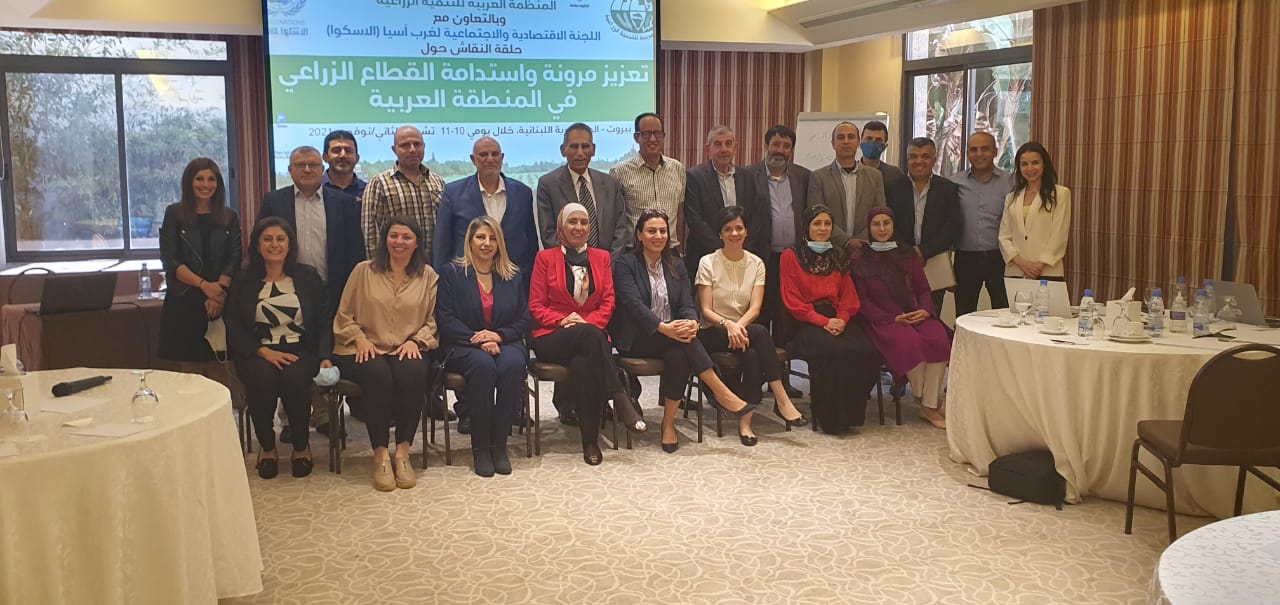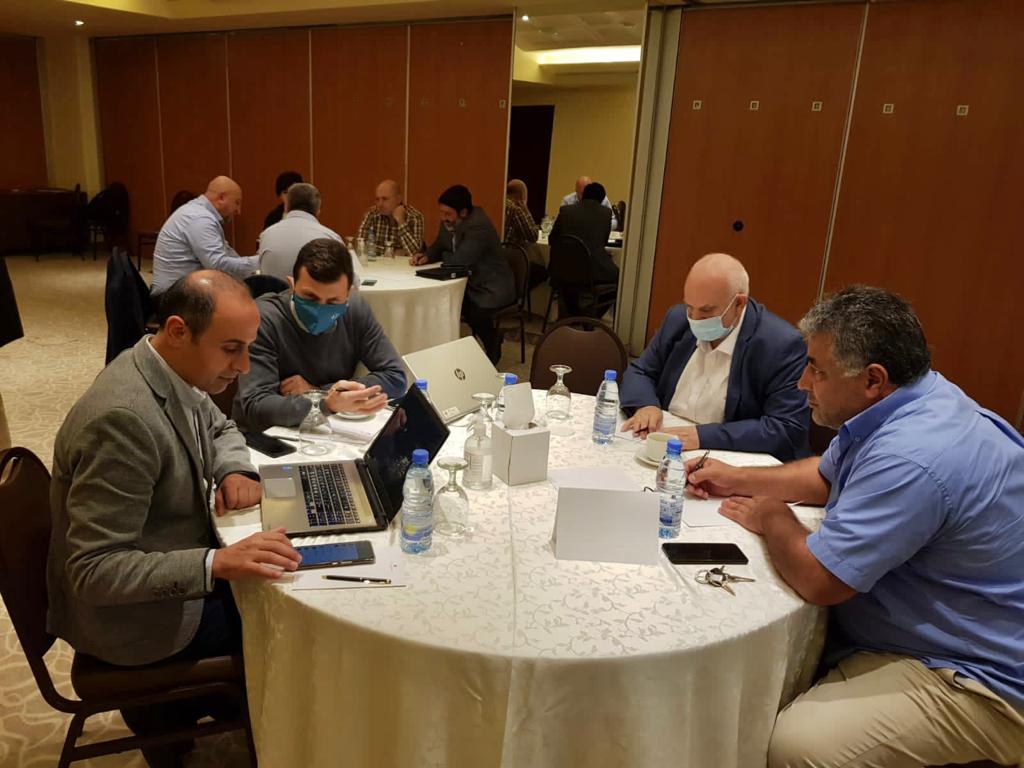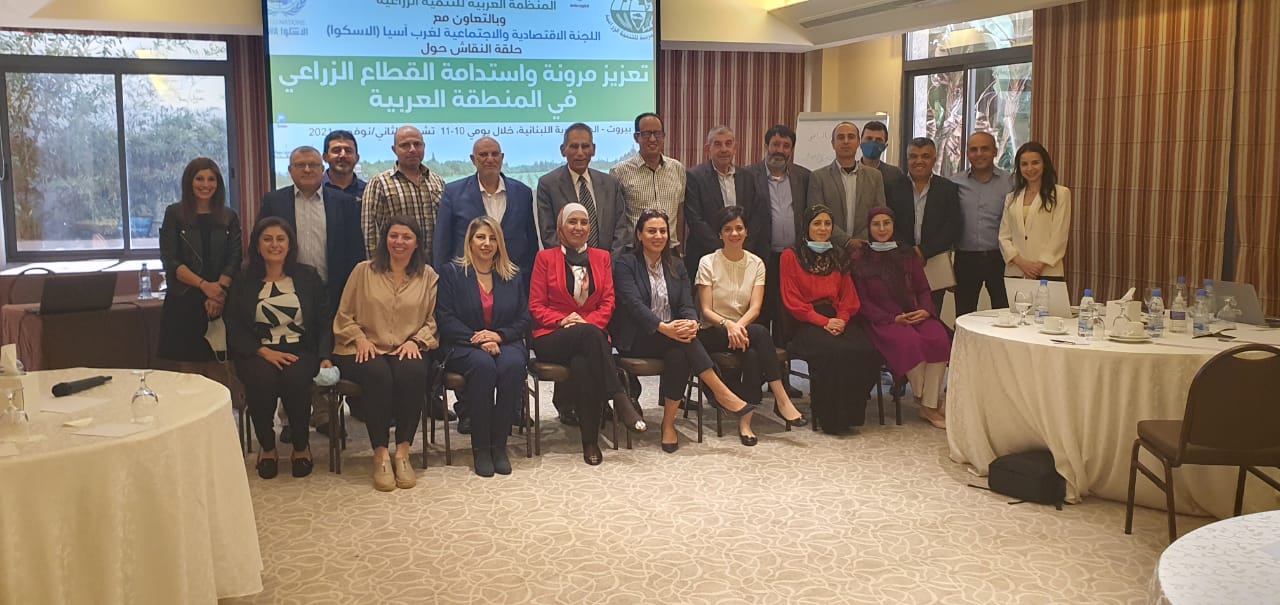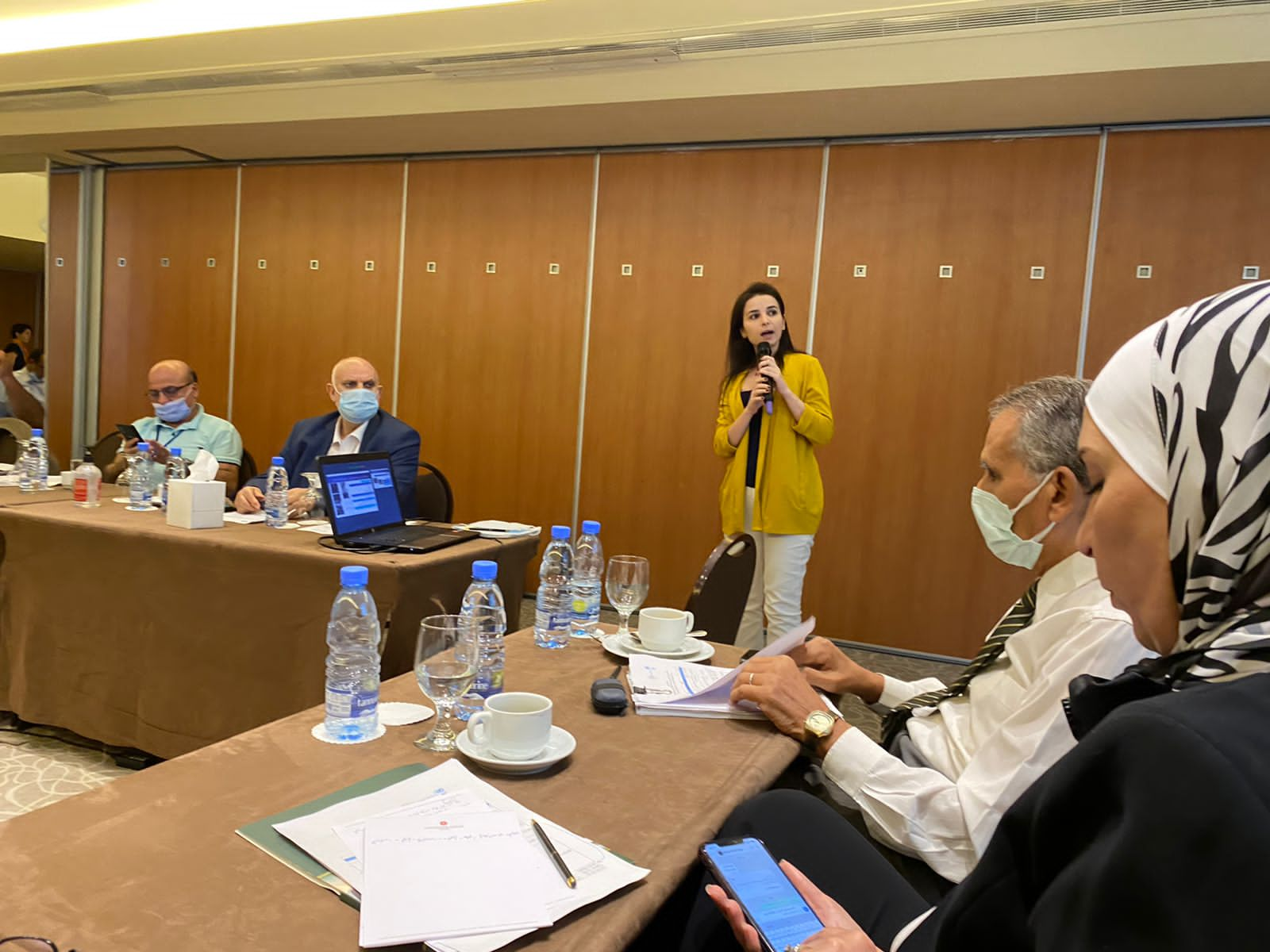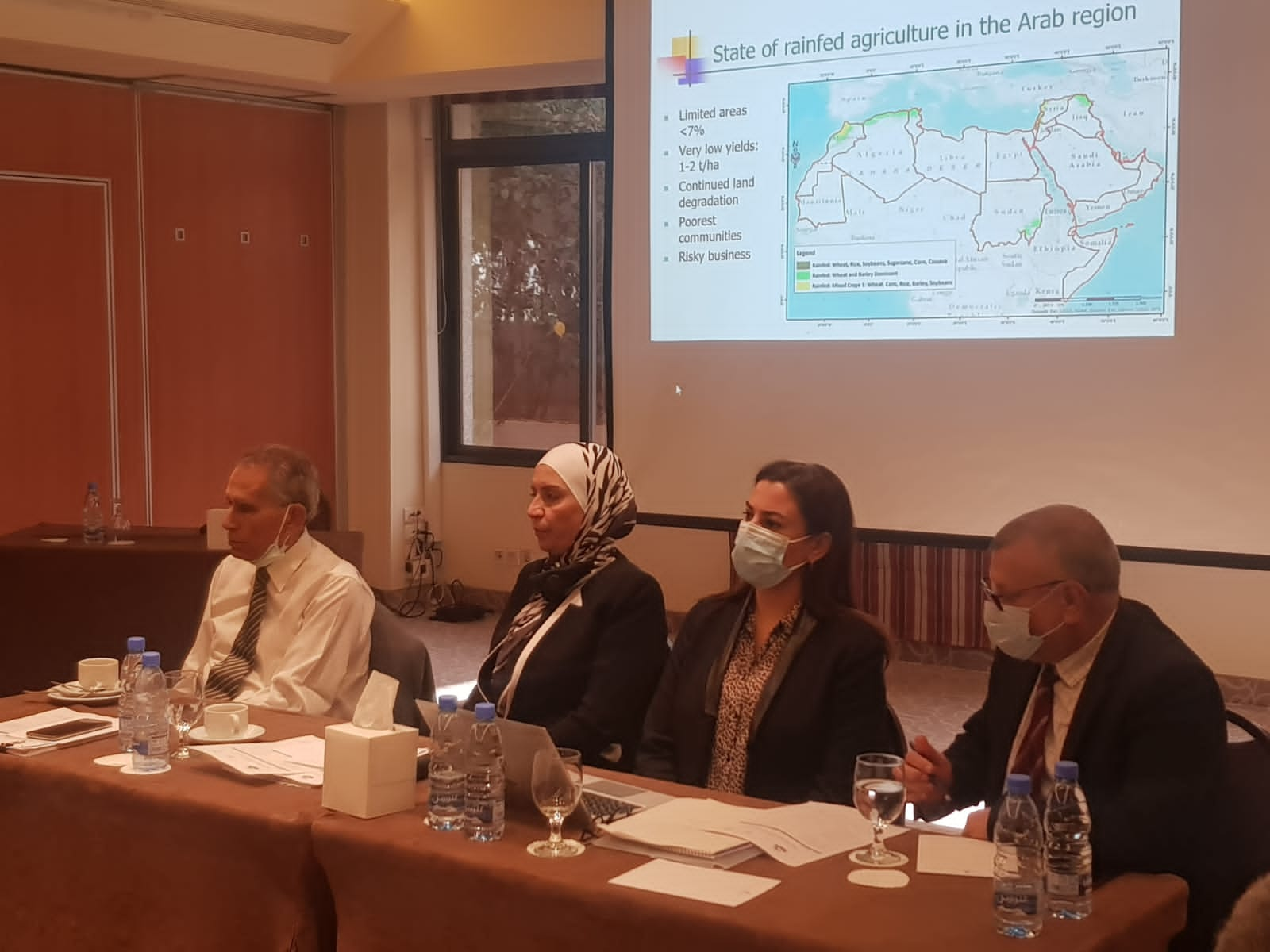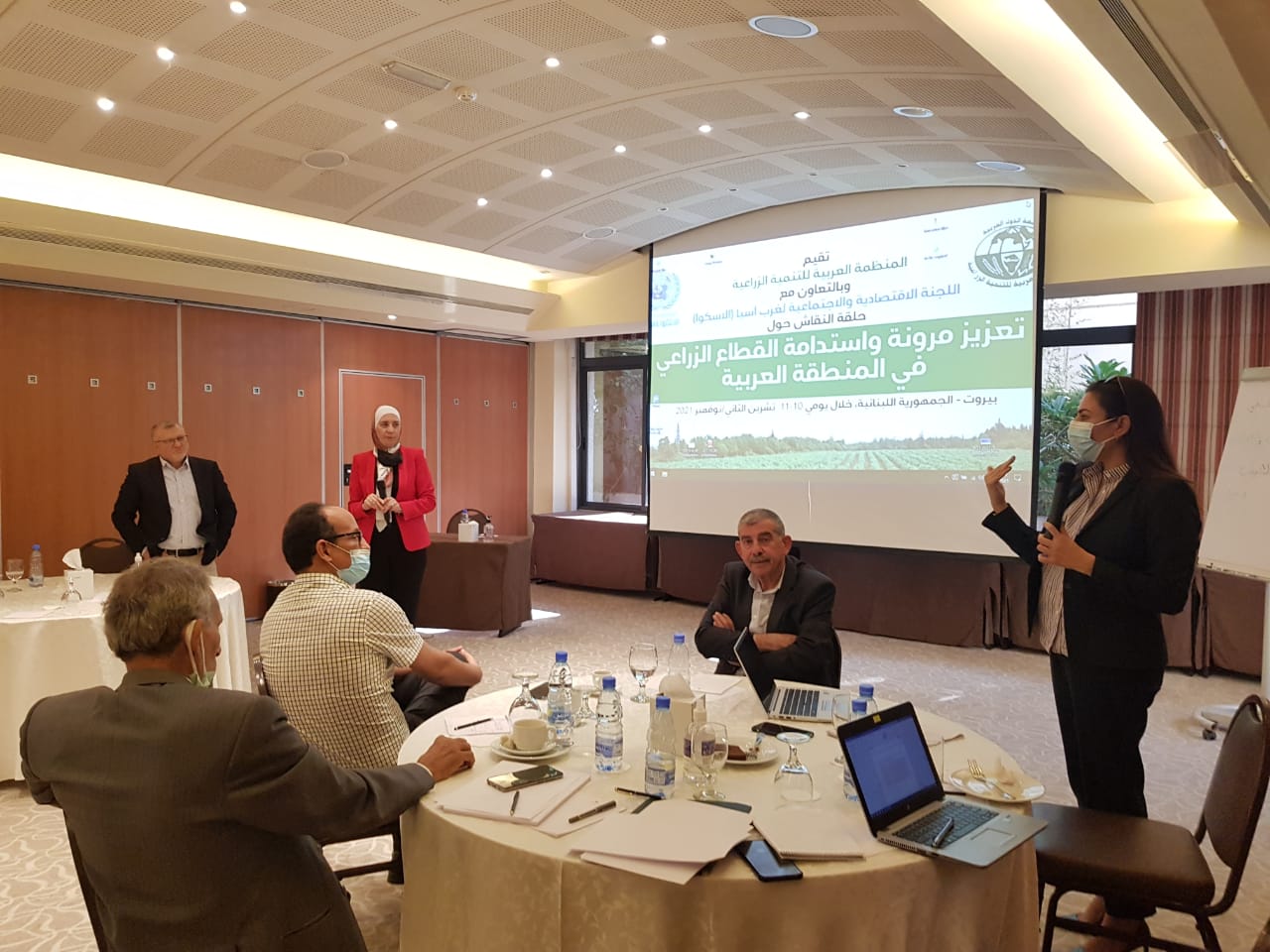Within the framework of the project on enhancing the resilience and sustainability of the agricultural sector in the Arab region, ESCWA, in cooperation with the Arab Organization for Agricultural Development, organized a national consultation session on the agricultural sector in Lebanon. The session is part of a series of five national consultation sessions in Arab countries.
The consultation session considered ways to bolster Lebanon's agricultural sector in the face of climate change, the unsustainable use of natural resources and the COVID-19 pandemic. The session, which gathered key national stakeholders from the agriculture sector, resulted in practical recommendations and the identification of national priorities. Representatives from the Ministries of Agriculture and Economy and Trade and experts from public entities, research centers and academia, including the general directorate of cooperatives, the Green Plan, the Lebanese agricultural research institute and the faculty of agriculture at the Lebanese University, participated in the consultation session. Also participating were representatives and experts from the agricultural engineers’ branch of the Order of Engineers, the general union of agricultural syndicates, the Chamber of Commerce, Industry and Agriculture in Beirut and Mount Lebanon, and representatives from the private sector, non-governmental associations and UN-Habitat.
It is expected that these five national consultation sessions in the targeted countries will result in a comprehensive document that identifies priorities and recommendations for the region's agricultural sector.
